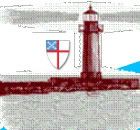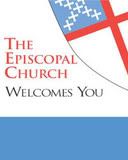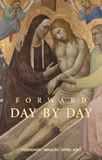St. James' Episcopal Church
Goshen, Indiana
Our 164th Year
Thursday, September 6, 2007
Sermon for September 9, 2007
Sermon for September 9, 2007
St. James’ Goshen, IN
Arthur Hadley
Each of the three lessons this morning concern making choices. In reality most of the Bible is about the people of God making choices and living with the consequences. It started with Adam and Eve in the Garden of Eden; they had a choice. They could live in the Garden of Eden eating of all of fruits and vegetables growing in the garden; all but one which God told them they must not eat of that tree. Well they, just like us, could not resist doing what we are told not to do. So they failed to eat of the tree of life which was offered, but chose to eat of the tree knowledge. The consequences were swift; God put humanity out of the Garden of Eden.
We intuitively know that we are missing what was once offered, everlasting life. We know that somehow we should have life, but we also know that our body will die. The body came from the dust of the earth in God’s creation, and returns to the dust of the earth. We all know that. But we also know that there is more to life than just the body.
In the first lesson for Deuteronomy we hear again about Moses who had listened to God at the burning bush: Go back to Egypt and tell Pharaoh to let my people go. God was telling Moses to go back to Egypt where Moses was a wanted man for killing two of Pharaoh’s soldiers. Moses was wanted for murder. Moses made a choice and the consequence was living in exile in the Sinai Desert. Moses followed God’s instructions. The Children of Israel fled Egypt following Moses into the Sinai that Moses knew well; God provided food and water, and the ten commandments in the desert. But even with all that was given by God, the Children of Israel had to make a choice. They had to choose between Life and Death. By loving God, following the commandments, and walking in his ways, they could have life, but if they turned away they would perish. Choose life.
In the second lesson Paul is writing to an long time friend and fellow Christian. Paul was in prison in Rome awaiting execution; with him was a fellow Christian disciple, who had been a slave of Philemon. Paul asks that the former slave be accepted by Philemon as a fellow Christian, even as a son of Paul. Could Philemon accept a run away slave as an equal, and provide for him as he would for a son of his great friend Paul?
When we accept the salvation, everlasting life, offered by Christ, we put aside other loyalties and other faith based beliefs. We accept Christ as our Lord and Savior. We accept the offer of God to reopen the doors of Eden in order that we may eat of the tree of life and have life everlasting with the ever living God.
We have a choice always before us: Choose Life by loving God, following the commandments, and walking in his ways, or turn away from what is offered and perish.
We have a choice. Choose Life.
Thanks be to God.
Subscribe to Posts [Atom]








